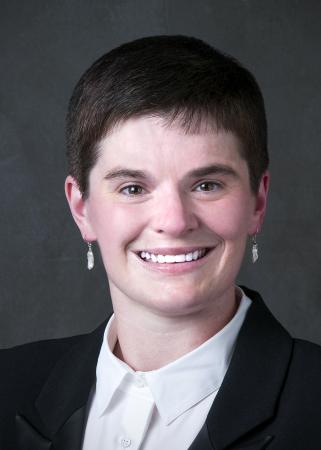Cassie Mitchell, research engineer in the Wallace H. Coulter Department of Biomedical Engineering at Georgia Tech and Emory, and her coauthor’s published article, “Undergraduate Biocuration: Developing Tomorrow’s Researchers While Mining Today’s Data,” was picked by the Faculty for Undergraduate Neuroscience and editors of the Journal of Undergraduate Neuroscience Education as the Outstanding Article of 2015. Their results reveal undergraduate biocuration is scalable for a group of 8-50 undergraduate students with relatively minimal required resources. Moreover, with average accuracy rates greater than 98.8 percent, undergraduate biocurators are equivalently accurate to their professional Ph.D. level counterparts.
Biocuration is a time-intensive process that involves extraction, transcription, and organization of biological or clinical data from disjointed data sets that are selectively entered into a database. The primary goal of biocuration is to accurately and comprehensively present this newly integrated data as a user-friendly resource for working scientists and as a basis for computational analysis.
Biocuration is traditionally considered a Ph.D. level task, but a massive shortage of curators to consolidate the ever-mounting biomedical “big data” opens the possibility of utilizing biocuration as a means to mine today’s data while teaching students skill sets they can utilize in any career. By developing a biocuration assembly line of simplified and compartmentalized tasks, Mitchell’s lab has enabled biocuration to be effectively performed by a hierarchy of undergraduate students.
“While automation is helpful, human biocurators are required to construct the accurate, multi-faceted ‘smart’ data sets required for breakthrough informatics analysis and personalized predictive medicine. We are thrilled to be recognized for our innovative, highly accurate and expedient biocuration protocol which is molding ‘big data’ into ‘smart data,’ said Mitchell.
“My undergraduate researchers are equally impressive on the analytical side where, in 2015 alone, we had nine undergraduate-authored journal articles that made key breakthroughs in the cellular physiology, epidemiology, and clinical prediction of Amyotrophic Lateral Sclerosis (ALS). We will have four posters with a total of 12 undergraduate authors at the Society for Neuroscience, where this award will be presented. Beyond the lab, our biocuration protocol and hierarchy of positions has prepared over 368 undergraduates for careers in project management, data analytics, epidemiology, graduate school, MD, and MD-PhD degrees.”
The article, coauthored with now former biomedical engineering undergraduates Ashlyn Cates, Renaid Kim, and Sabrina Hollinger, summarizes the necessary physical resources, process for establishing a data path, biocuration workflow, and undergraduate hierarchy of curation, technical, information technology (IT), quality control and managerial positions. Further, the paper details the undergraduate application and training processes and provides detailed job descriptions for each position on the biocuration assembly line.
Ashlyn Cates (B.S. BMED 2015) now works as a project manager/consultant for Huron Engineering. She was formerly the quality control manager in Mitchell’s lab. Renaid Kim (B.S. BMED 2016) spent four years in Mitchell’s lab and won the 2016 Undergraduate Research Award, authoring six articles while in the lab. He is now a MD-PhD student at the University of Michigan. Sabrina Hollinger (B.S. BMED 2012) worked in Mitchell’s lab as both an undergraduate and a graduate student. She is now working as an epidemiologist for the Georgia Department of Health and Human Services.
Media Contact:
Walter Rich
Communications Manager
Wallace H. Coulter Department of Biomedical Engineering
Georgia Institute of Technology
Media Contact
Walter Rich
Keywords
Latest BME News
Jo honored for his impact on science and mentorship
The department rises to the top in biomedical engineering programs for undergraduate education.
Commercialization program in Coulter BME announces project teams who will receive support to get their research to market.
Courses in the Wallace H. Coulter Department of Biomedical Engineering are being reformatted to incorporate AI and machine learning so students are prepared for a data-driven biotech sector.
Influenced by her mother's journey in engineering, Sriya Surapaneni hopes to inspire other young women in the field.
Coulter BME Professor Earns Tenure, Eyes Future of Innovation in Health and Medicine
The grant will fund the development of cutting-edge technology that could detect colorectal cancer through a simple breath test
The surgical support device landed Coulter BME its 4th consecutive win for the College of Engineering competition.








